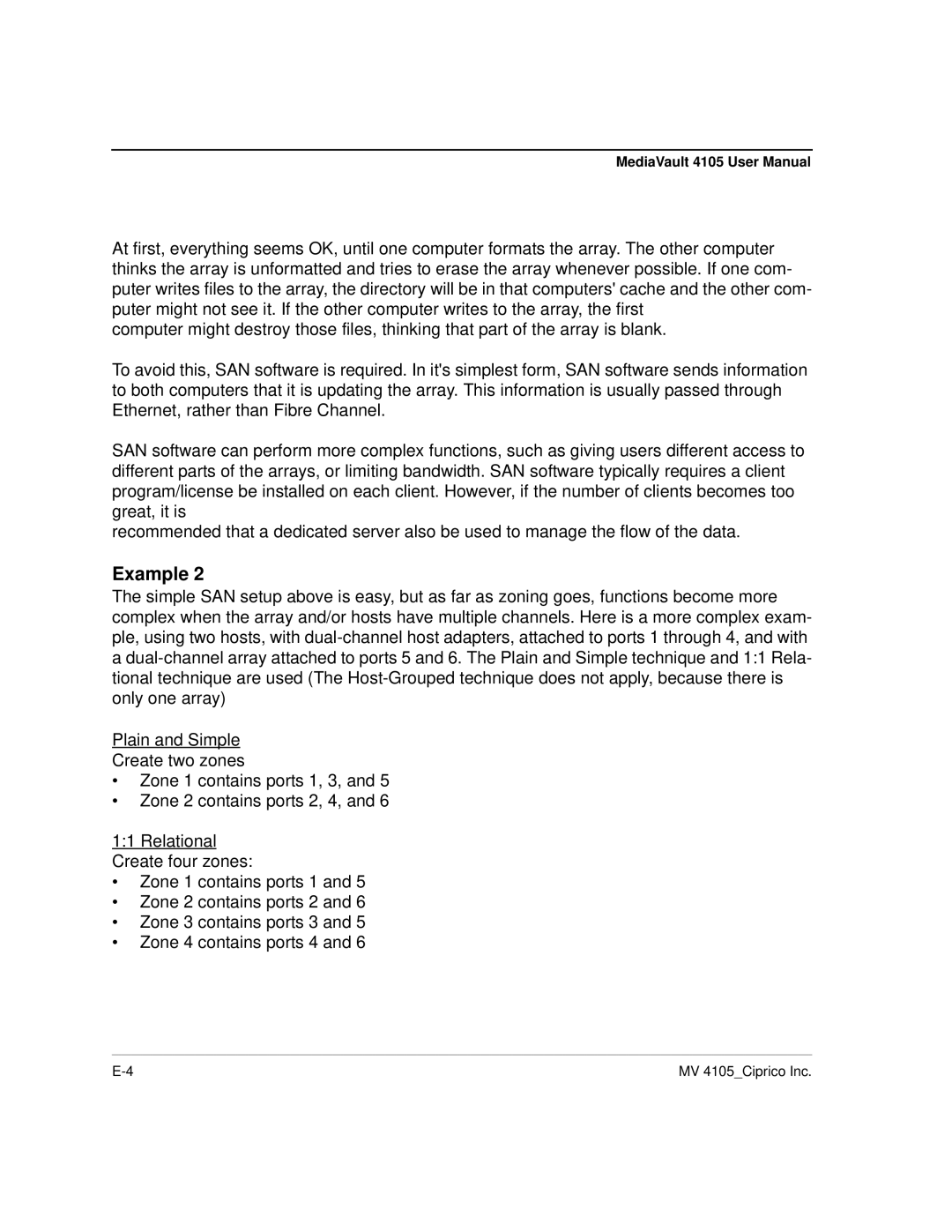
MediaVault 4105 User Manual
At first, everything seems OK, until one computer formats the array. The other computer thinks the array is unformatted and tries to erase the array whenever possible. If one com- puter writes files to the array, the directory will be in that computers' cache and the other com- puter might not see it. If the other computer writes to the array, the first
computer might destroy those files, thinking that part of the array is blank.
To avoid this, SAN software is required. In it's simplest form, SAN software sends information to both computers that it is updating the array. This information is usually passed through Ethernet, rather than Fibre Channel.
SAN software can perform more complex functions, such as giving users different access to different parts of the arrays, or limiting bandwidth. SAN software typically requires a client program/license be installed on each client. However, if the number of clients becomes too great, it is
recommended that a dedicated server also be used to manage the flow of the data.
Example 2
The simple SAN setup above is easy, but as far as zoning goes, functions become more complex when the array and/or hosts have multiple channels. Here is a more complex exam- ple, using two hosts, with
Plain and Simple
Create two zones
•Zone 1 contains ports 1, 3, and 5
•Zone 2 contains ports 2, 4, and 6
1:1 Relational Create four zones:
•Zone 1 contains ports 1 and 5
•Zone 2 contains ports 2 and 6
•Zone 3 contains ports 3 and 5
•Zone 4 contains ports 4 and 6
MV 4105_Ciprico Inc. |
